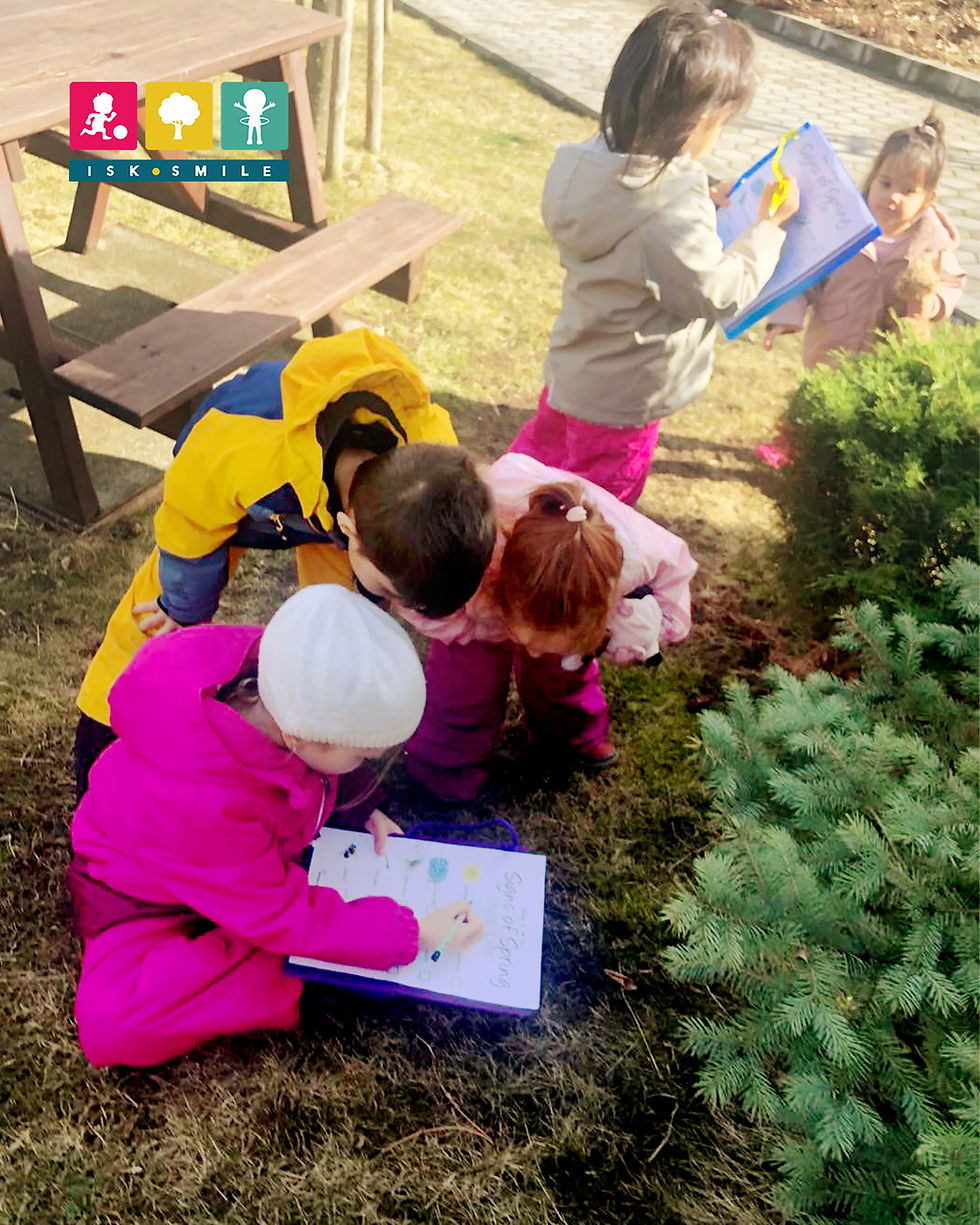Promoting Independence in Kindergartners: Practical Tips for Parents
- Elina Cherkezova-Veleva
- Apr 9
- 3 min read

Fostering independence in young children is one of the greatest gifts parents and educators can provide. Encouraging self-reliance helps children develop confidence, problem-solving skills, and a sense of responsibility. At ISK-Smile, independence is nurtured through carefully designed learning environments, such as the kindergarten’s learning centers, where children work at their own pace—either independently or with the support of a teacher, based on their needs. This balance of guidance and freedom helps children gradually build essential life skills.
For parents who want to encourage independence at home, here are some practical tips:
1. Encourage Self-Help Skills
From an early age, children can take part in daily tasks that promote autonomy. Simple activities like dressing themselves, putting away their toys, or setting the table help them gain confidence in their abilities. To support this at home:
Provide clothes that are easy to put on and take off.
Set up a low shelf or basket where toys can be stored.
Assign small household tasks like watering plants or feeding a pet.
At ISK-Smile, children are encouraged to take responsibility for their learning materials, keeping their spaces tidy and organizing their supplies—skills that transfer easily to home routines.
2. Create a Structured Yet Flexible Environment
Children thrive in environments that offer both structure and freedom. Having a predictable routine makes them feel secure, while opportunities for choice help them develop decision-making skills.
Create a visual schedule at home so they know what to expect each day.
Offer limited choices, such as "Would you like to wear the red shirt or the blue one?"
Allow them to decide on small things, like which book to read before bedtime.
3. Teach Problem-Solving Skills
Allowing children to figure things out on their own builds resilience and problem-solving abilities. Instead of immediately solving problems for them, try:
Asking guiding questions like, "What do you think you should do next?"
Encouraging trial and error.
Praising effort and persistence rather than just the final result.
4. Promote Social and Emotional Independence
Developing independence isn’t just about tasks; it’s also about building emotional and social resilience.
Encourage children to express their emotions and talk about their feelings.
Teach them how to ask for help when they need it.
Support them in resolving small conflicts with peers by discussing solutions together.
ISK-Smile emphasizes social development by integrating emotional learning into activities. During circle time, for example, children share thoughts and feelings, helping them learn how to communicate and self-regulate emotions.
5. Support Independent Learning
Preschoolers are naturally curious and eager to learn, and fostering independence in learning can create lifelong habits of curiosity and self-motivation.
Provide books, art materials, and age-appropriate educational toys at home.
Encourage them to explore topics of interest and ask questions.
Resist the urge to give immediate answers—let them think critically and explore possible solutions.
At ISK-Smile, children engage in hands-on, self-directed learning every day. The learning centers allow them to explore subjects at their own level, with teachers offering support only when necessary. This approach encourages independent thinking and confidence in their abilities.
6. Encourage Self-Expression and Creativity
Giving children the freedom to express themselves creatively fosters independence and self-confidence.
Provide open-ended toys like building blocks or art supplies.
Allow them to tell their own stories through drawings or play.
Support their interests, whether it’s music, painting, or role-playing games.
ISK-Smile integrates creativity into daily learning. Whether children are painting, building, or singing, they are encouraged to make choices that reflect their individual interests and personalities.
Promoting independence in preschoolers is a gradual process that requires patience, encouragement, and the right environment. By fostering self-help skills, decision-making, and problem-solving abilities, parents and educators prepare children for a future of confidence and self-sufficiency.
At ISK-Smile, this journey begins in the learning centers, where children explore, create, and learn at their own pace with the right level of guidance. They are also encouraged to become inquirers by our PYP by IB curriculum. By incorporating these strategies at home, parents can further support their child’s independence, helping them grow into capable and confident individuals.





Comments